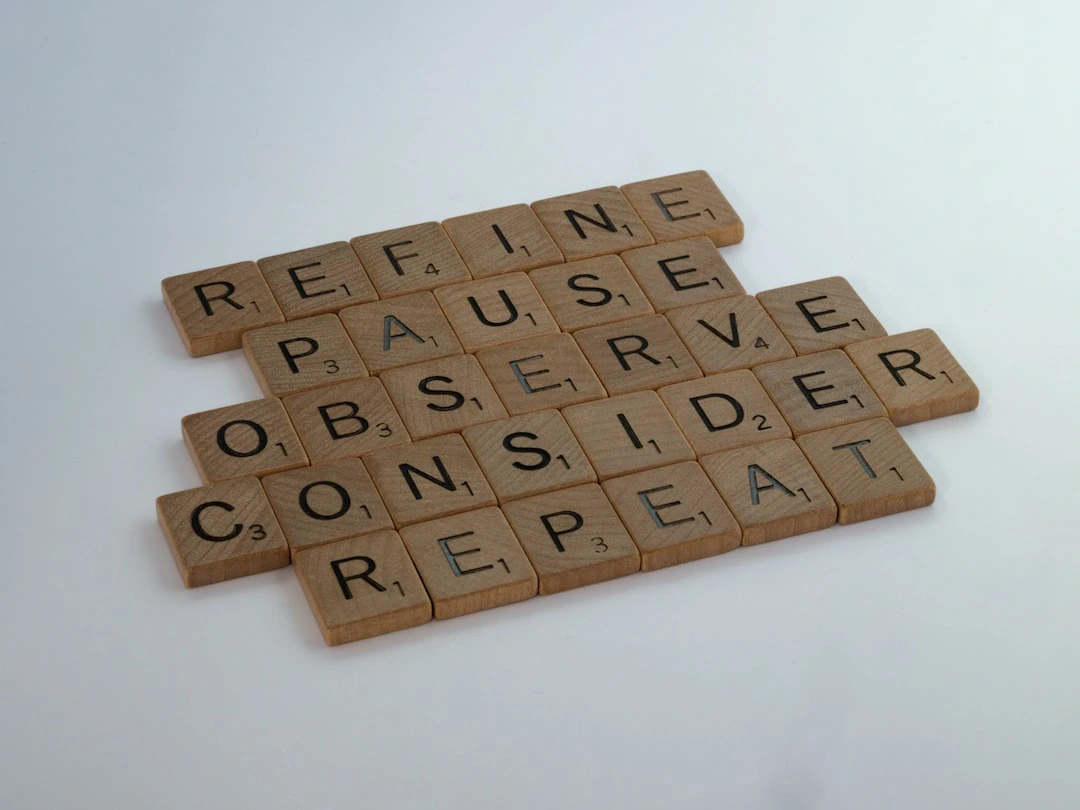How to Set Boundaries
What comes to your mind when you hear the word 'boundaries'?

Do you think of a wall between you and your friend, partner, colleague, or family? Are you scared it'll rid you of your intimacy with those you care about?
If your answer to the above is yes, it's quite normal to think that way. Most of us grew up knowing barricades as what keep us out, rather than protect us.
Boundaries used to sound scary to me until I understood their end goal. Without boundaries, you can't define where one thing ends and the other starts. You can't specify how much you can take before you break. You can't communicate the limit of the behavior you can withstand before getting annoyed with someone.
Ultimately, they reflect how much you understand and respect yourself. If you don't know what you need or what doesn't make you cool, you haven't taken the time to assess what goes on inside of you.

Until you understand the triggers and limits in yourself, you might keep being tolerant till you get exploited. Lacking boundaries can lead you to be emotionally manipulated.
My first attempt at setting a boundary was when I first resumed my current school. I knew I disliked my properties being used without permission, but I never stated it to the roommates I'd been with. Resuming a new school was an opportunity for me to exercise my assertiveness and I did.
I was surprised and encouraged when my roommates respected that and they always called or texted me if they needed to use my stuff and I wasn't in the room.
Using myself as a case study, let's see how setting boundaries goes. Here's how I made that happen.
SELF-AWARENESS: When I first resumed, I took time to observe how I felt when some things happened. I noticed that I felt disrespected and worked up when someone used my stuff without telling me first. I didn't feel that way when we made jokes and teased ourselves.
Sometimes, you may not know what you don't want until someone does it and it ticks you off wrongly. That's fine too. The key to SELF-AWARENESS is observation. Be sure of what works and doesn't work for you.
JUMPING RIGHT IN: After noticing and seeing it happen again, I contemplated for a while about telling them or not. I was scared about their possible reaction and how they'll see me. I didn't want to come off as arrogant. That made me more uncomfortable and resentful. I began getting annoyed and it was difficult to express it because they thought I was fine with it.
Eventually, I had to express myself. Procrastinating the discussion will only make you feel worse.

Photo by Kid Circus on Unsplash
HAVING THE DISCUSSION: For me, I didn't have to call a roundtable meeting and distribute the agenda of the meeting before I passed my message across. It happened when one of my roommates used my bucket of water when I wasn't around.
I came back from class stressed, hoping to have a shower and sleep. Meeting my bucket empty was the push I needed to state it clearly. I waited till everyone was in the room and confronted the person at fault. She apologized. That was the cue everyone else needed to know they have to ask for my permission.
TELLING OTHERS WHAT YOUR BOUNDARIES ARE DOESN'T MEAN THEY WILL STICK TO THEM. KEEP ENFORCING IT UNTIL YOU DON'T NEED TO.
Another time, someone wore my slippers and I was looking for them after waking up from a nap. Because of that, I couldn't get my food in time. I had to confront her many times before she eventually respected that.
For you, it might be at work. Or maybe your partner keeps inviting his friends over without informing you ahead. The hack in talking about it is to focus on how their actions make you feel, and not use accusatory words.
"You don't care about me. You invite your friends without telling me first. Stop it." ❌
"I'm not comfortable with you inviting your friends without telling me ahead. I'll prefer a notice because I need to mentally prepare. If it continues, I'll stop giving them an audience and leave." ✔️
Also, knowing the right time and mood is necessary to have a discussion. At first, it could seem uncomfortable. But, it gets easier when you find your way around it.
BE RESPECTFUL: There were times I needed to lend something from my roommate too. Although she didn't spell that I needed to ask for permission, I always did. It felt right because I also demanded it.
Don't expect others to give you what you can't give them.
As much as you want your needs to be respected, respect others'. What most people don't realize is that boundaries make you closer to others. Because they know how best you want to be related with, they're aware of what you don't like, they carry out their role in the relationship correctly. As a result, you feel safe with them.
Respect yourself too and act with class.
Don't joke when you want to talk about what you're uncomfortable with. You can speak kindly and firmly.

Photo by Tiago Felipe Ferreira on Unsplash
KNOW YOUR DEAL BREAKERS: We all have our limits. As much as there are boundaries, there are some things that you can't compromise your standards for.
For example, if you're in a relationship where your partner often shows public displays of affection and it makes you uncomfortable, you can let them know. Your physical/sexual boundary could be violated that way if it continues because their actions are against your ideals.
But, a deal breaker could be your partner beating you up. Deal breakers indicate the extremities that can make you break off a relationship you have with someone. Being beat up in a relationship is unhealthy in itself, and that's a sign of something worse in stock.
Having a healthy relationship with your friend, family, colleague, or partner depends largely on a healthy approach in addressing differences and respecting what works for both parties.
If what someone does makes you feel anxious, irritable, or angry, it's time to let them know how their actions make you feel. If you value the relationship, you'll talk about it.
If you don't talk about it, you'll end up feeling deprived and disrespected because the other person has no idea of how it affects you and they'll keep doing it.
Value yourself and your worth enough to communicate your limits with the people in your life.
Well done with wanting to get better.
Talk to you soon. ❤️
Yours Mindfully,
Tolulope Dada
Like this project
Posted Sep 8, 2023
An engaging blog post with practical steps and relatable insights about setting boundaries.






